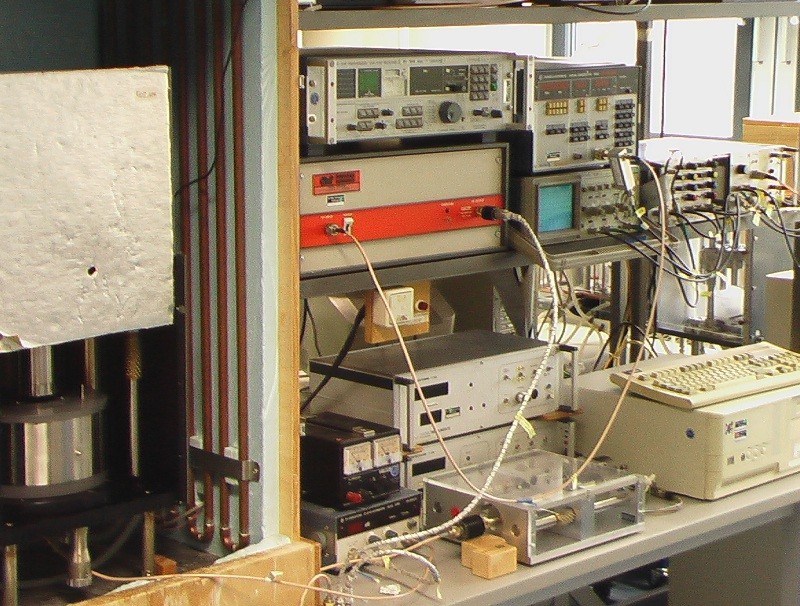Ultrasonic attenuation spectroscopy
 Ultrasonic damping spectroscopy (also: ultrasonic spectroscopy or ultrasonic absorption spectroscopy) - is a method for characterizing the properties of liquids and dispersed particles. It is also known as acoustic spectroscopy. The measurement of the damping coefficient as a function of the ultrasonic frequency provides raw data for the further calculation of various system properties.
Ultrasonic damping spectroscopy (also: ultrasonic spectroscopy or ultrasonic absorption spectroscopy) - is a method for characterizing the properties of liquids and dispersed particles. It is also known as acoustic spectroscopy. The measurement of the damping coefficient as a function of the ultrasonic frequency provides raw data for the further calculation of various system properties.
Such raw data is often used when calculating the particle size distribution in heterogeneous systems such as emulsions and colloids. In the case of acoustic rheometers, the raw data are converted into shear viscosity or bulk viscosity. What is not generally known is that with the help of ultrasound spectroscopy, molecular processes can also be examined, such as changes in conformation. This is a non-destructive measurement method.
Do you have questions on the topic and want to find out more, or do you need the support of our digital think tank for your project? Take like Contact up with us!





